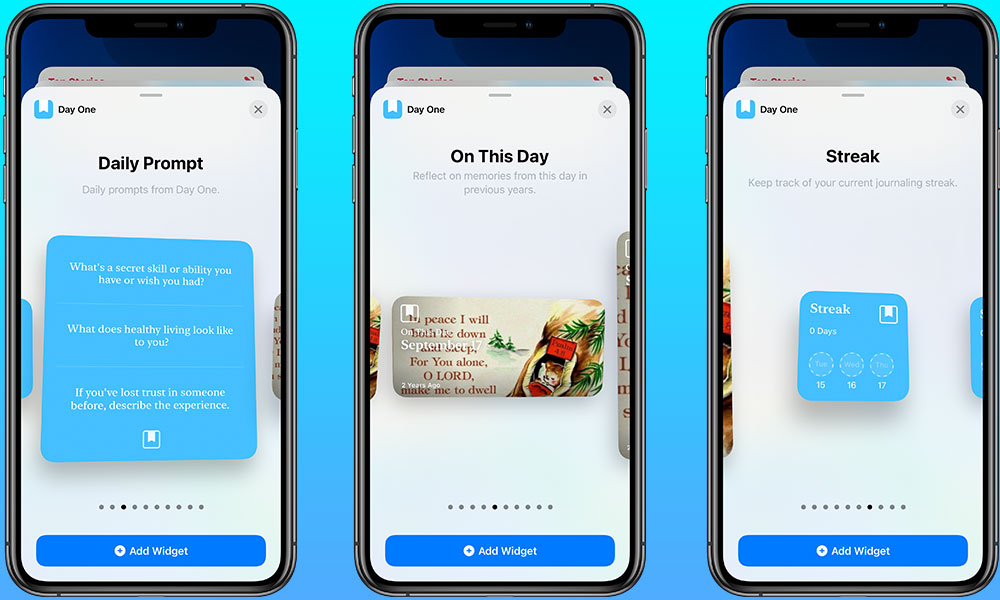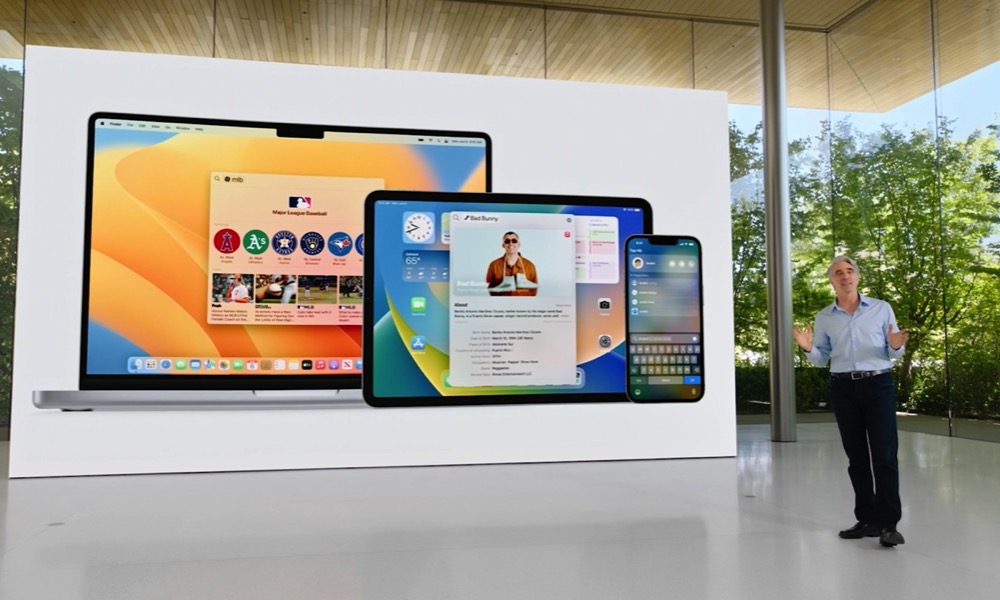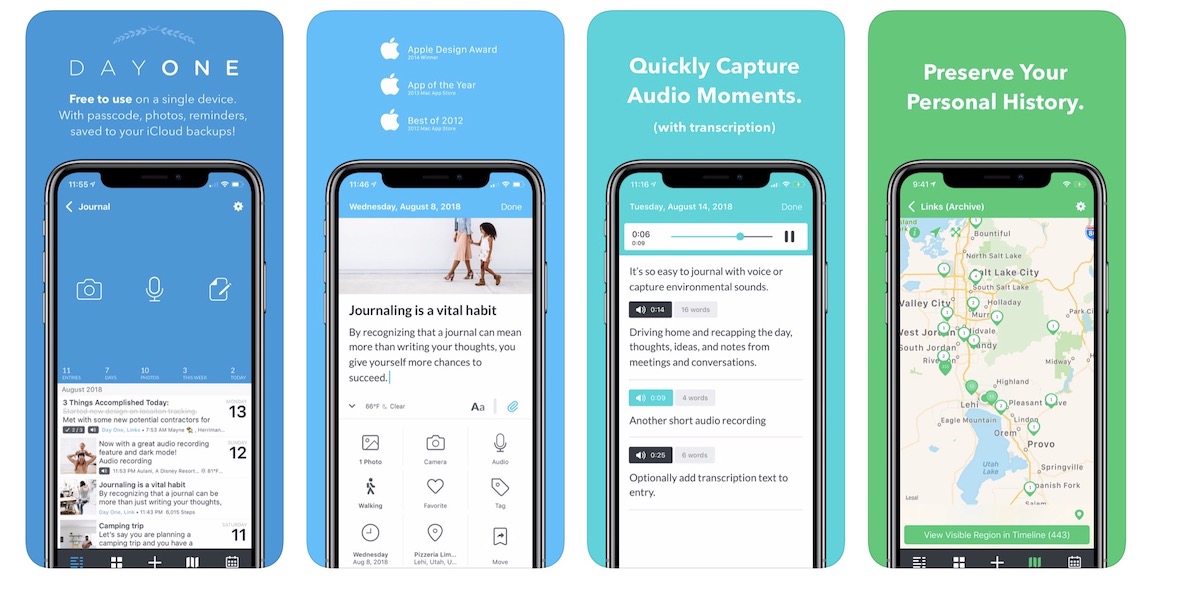Apple’s New iOS 17 Journalling App Will Analyze Your Day
 Credit: Jenny Ueberberg
Credit: Jenny Ueberberg
Toggle Dark Mode
Multiple reports have suggested that iOS 17 may offer less in the way of exciting “tentpole” features compared to prior releases. However, Apple may have a different trick up its sleeve in the form of an entirely new app.
This week, The Wall Street Journal (Apple News+) reported seeing documents outlining Apple’s work on a new journalling app, designed “to let users compile their daily activities” to assist with physical and mental health.
While the App Store is already rife with journaling apps — and has been for years — it appears that Apple may be using its home field advantage to do more than these third-party apps can.
One of the most popular journaling apps in the Apple ecosystem is Day One. Available for the Mac, iPhone, and iPad, it offers its own cloud synchronization, web-based access to journals, a watchOS companion app for quick entries, and an impressively tight level of integration with iOS. For instance, journal entries can automatically record what you’re listening to from Apple’s Music app, pull your step count and activity from Apple’s HealthKit frameworks, add even add local weather conditions and altitude information.
Despite this, there are some things that third-party apps still can’t do. However, if the Journal’s information is correct, Apple doesn’t plan to let that stop it from adding these capabilities to its own app.
For instance, the documents show that Apple’s journalling app will have access to text messages and phone calls — information that’s strictly off-limits to third-party apps for privacy and security reasons. Not surprisingly, it will also come pre-loaded on every iPhone that ships with iOS 17 — and likely get installed on older phones as part of the iOS 17 update.
It’s unclear whether the new app will be exclusive to the iOS 17 platform or whether users of older iOS versions will be able to download it from the App Store. However, with reports that iOS 17 will leave no iPhone behind, it’s possible Apple may not be too concerned about backward compatibility for this app — especially if it needs to take advantage of new features in iOS 17.
What We Know About Apple’s Journalling App
According to the Journal, Apple’s new app has the code-name “Jurassic,” and it’s expected to be more than just a place to record your deepest thoughts.
For one thing, Apple plans to put its machine learning efforts into the app to analyze your behavior and “determine what a typical day is like.” This will include analyzing how much time you spend at home and in other locations and when you’re in proximity to other people — reportedly also with the ability to distinguish between friends, colleagues, and random encounters. This is likely where the analysis of phone calls and text messages will come into play.
As worrisome as this kind of data collection may seem, the new journalling app has the potential to shine a light on what kind of information has been available to Apple all along. Naturally, the company is emphasizing privacy and security here, with the documents noting that all analysis will take place on the user’s device and not transmitted or shared anywhere else. The analytical data will also be used only to power journalling suggestions, and as things stand now, that background data will be permanently removed from your device after four weeks.
Apple has a long history of going out of its way to preserve privacy by pushing analysis of user data onto the A-series chips in its devices rather than relying on cloud-based services. This first became apparent when Apple added new facial and object recognition features to its Photos app in iOS 10, leading the way in showing how this could be done in a way that focused on user privacy. It’s been iterating on that approach ever since, building more powerful Neural Engines with each new iPhone release to handle the staggering computation required for on-device data analysis.
The Journal isn’t sure when Apple will unveil the new “Jurassic” app, noting that it could be announced at this June’s Worldwide Developers Conference (WWDC). Still, it’s also possible Apple might wait until later this year, perhaps announcing it during the iPhone 15 launch event in September.
‘Sherlocking’ Smaller Developers
Apple’s new app will understandably ruffle the feathers of quite a few developers of third-party journaling apps. By baking journalling functionality deeper into iOS 17 with its own app, it stands to diminish the market for other journalling apps on the App Store.
Some are already accusing the company of “sherlocking” them — a euphemism that grew from Apple supplanting the third-party Watson app in 2001 with its new Sherlock search app that ultimately became the foundation of the Spotlight search we know today.
At the very least, these third-party developers will have to find ways to differentiate themselves. Day One founder Paul Mayne told the Journal, “It’s always the worst thing to hear that you’re about to be sherlocked,” but added that he suspected it was coming after Apple stopped promoting Day One as heavily as it once did.
Day One launched in 2011 and has grown to more than 200,000 paying subscribers, primarily driven by Apple’s support. It was prominently displayed and promoted on the App Store for years and even received an Apple design award in 2014. However, about three years ago, Mayne noted that Apple’s support for Day One seemed to evaporate, leading him to believe the company was preparing its own app.
Fortunately for third-party developers, Apple’s built-in apps rarely do more than the basics. For example, there’s a thriving industry of third-party calendar, email, and task management apps that run circles around Apple’s Mail, Calendar, and Reminders. This new “Jurassic” app could follow a similar road, leaving Day One and others to add value beyond what Apple’s first-party app can do.
Since Apple will be launching its journaling app as part of iOS 17, it’s also possible that third-party developers may get access to some of the same APIs and frameworks that will underlie Apple’s own app. While the idea of Apple opening things up to readily may have seemed far-fetched a few years ago, the company is under a greater degree of anti-trust scrutiny, so it has a stronger motivation to ensure that it’s not giving itself an unfair advantage — especially when it’s about to release an app that’s in such direct competition with what’s already out there.
[The information provided in this article has NOT been confirmed by Apple and may be speculation. Provided details may not be factual. Take all rumors, tech or otherwise, with a grain of salt.]










